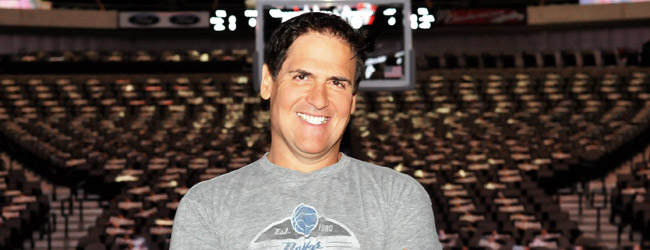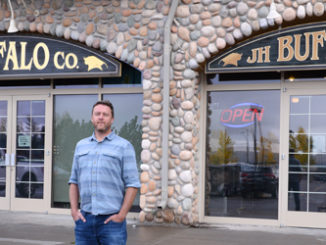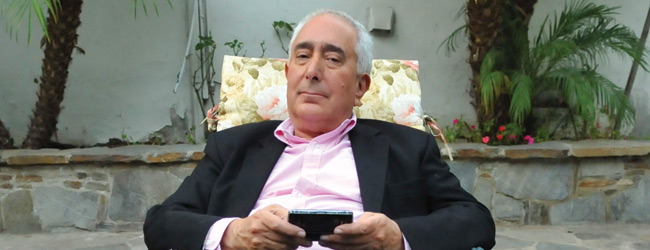
Approximately six months ago, GPS compiled a list of extraordinary people with extraordinary stories. From that list, we selected the individuals we thought were most inspirational. The Mark Cuban story is as inspirational as it is fascinating. We wanted to offer our entrepreneurial readership the opportunity to peer into the mind of an exceptionally successful, achievement-driven individual.
Mark, you’re in a very exclusive club. There aren’t a lot of billionaires walking around. Many have found their way into the millionaire’s club, but very few will gain membership into the world of billionaires. My first question is what advice would you give millionaires trying to become billionaires?
Geoff, if you set off to be a billionaire, I don’t believe it ever quite works the way you intended. I’m sure there are many who set out to be millionaires and some who want to become billionaires; becoming a billionaire is a lofty goal. Look, I am the first to acknowledge that luck plays a role. In my case, I had a great partner in Broadcast.com that went public at the right time; it was about the same time Internet stocks were going nuts. Luck certainly played a role, but we played a role in making luck work for us. We knew we had something special—we were ahead of the market curves and understood undiscovered technology demands that we could lead the way in. I remember talking to our employees back when there were only 10 of us. I think our company was about six months old. I told everyone five years from now, we will either be worth billions or worth bumpkins. I remember saying if we all work hard, we will be able to look back and say we gave ourselves a real shot. We knew that taking the Internet and using it as a broadcast medium could have a ubiquitous appeal to corporations and consumers. I believed in that. I had to transcend that belief into others. Success would require more than seeing an opportunity—it would require hard work.
My advice for those aspiring to take things to the next level is try to choose or evolve products that are ubiquitous to as many consumers as possible. Remove market limits and barriers. Consider products/services that you can visualize every business using or every consumer using. This is the scale you have to perceive in order to surpass your wildest dreams, to get into the billionaire’s club. Luck will always play a role, but you have some control over that luck.
At what point did you realize that you were going to be exceptional? Look back on your childhood in Pennsylvania or when you were enrolled at Indiana University or when you moved to Dallas. When did you have a feeling that things were going to happen?
I remember asking my dad for some basketball shoes when I was about 12 years old. I wanted new basketball shoes because I was a basketball junkie back then. My dad said, “If you want a new pair of tennis shoes, you have to go out there and get a job.” I remember saying, “Dad, I’m 12 years old.” This discussion was going on between us while he was playing poker with his buddies. One of his buddies said to me, “I’ve got a job for you. I’ve got these garbage bags that we distribute, you can sell them door-to- door.” I said, “Okay.” It was while I was selling them I realized that I liked to sell and that I could sell. I recognized that selling was about providing a service and creating value for people that I knew. Back then, I knew that I could always succeed!
I was about 16 when I started a stamp company. I started going to stamp shows and trade shows and just working a little bit harder than other people at these shows. I would trade up from one stamp to the next. I went to a show starting with only a quarter and started with buying a single stamp. I left that show with $50 thinking hey, if I could do this, I could do anything! It’s not that everything worked. I failed a lot, but I never felt like I wouldn’t be able to work hard enough to succeed.
You have extreme passion for the Dallas Mavericks. Your passion on the court is iconic to Mark Cuban. Do you think this passion transcends into your approach to business?
I think it’s the other way around. It was the passion I’ve always had for business and being an entrepreneur that transfers into the Mavs. I’ve always been passionate. Some people thought it was more OCD than anything else, which I think is a great trait for an entrepreneur. Earlier, I mentioned the stamp business. When I was a kid, I would stay up until 3 a.m. or 4 a.m. reading Linn’s Stamp News and Scott’s Stamp Journals and have them all memorized to give myself an edge. I did this knowing that I had to be in school in a few hours.
Even when I was in college, I’d be in the library reading business books, looking for business biographies and reading all I could about business. When I had MicroSolutions, I started with no money. I’d pull all-nighters trying to borrow computers, teaching myself software and how to program. I’ve always really enjoyed the competition of business. In the sports business, I’ll talk to our players and say something like, “You guys compete with 48 minutes, you practice a couple of hours and work on your game as a team and independently for another couple hours.” This is the necessary preparation to be competitive in sports. The ultimate sport is business because you have to compete with everyone. There’s always someone out there trying to kick your butt. There’s always someone who looks at your business and says, “I can do that better” or, “I have a better idea.” This is who business owners have to compete with and against all the while keeping their customers and employees happy.
The competitive side of me came before sports—this is the entrepreneur in me. I think that has to drive you in order to be successful. I think that carries over into my passion for the Mavericks. I want them to win and I want to compete.
When you started MicroSolutions, it was a small company. What advice would you give small business owners?
Love what you do. I think too many people think they have to find that one idea. There’s nothing wrong with failing. I’ve told a lot of people, it doesn’t matter how many times you fail, if you get it right, you’re an overnight success. All you’ve got to do is get it right one time. I sold powdered milk and that was a disaster. My senior-year project in Indiana was opening up a bar that got closed because of a wet t-shirt contest with a 16-year-old as a contestant. That was a disaster, but was ultimately a win because it kept me out of the bar business. I got fired from my first job in the software business because I wanted to close the deal and make the sale instead of sweeping the floor.
It didn’t matter how many times I failed, I just kept on going and going and going. Entrepreneurs need to realize that sometimes it’s not the idea—it’s not who you know or how much money you have access to. It’s more important finding something that you really love to do—finding something you can be passionate about. I had no idea I loved computers and technology when I was first exposed. I took one computer class in Indiana and I cheated to get through it. It was Fortran. Later, I bought a little PC—a 994A from Texas Instruments for $99 and taught myself how to program. I would look up at the clock and find four hours would pass by and then another five hours later, I would look again and realize I’d been working that entire time and I loved it. This is the difference between performing a task and being motivated to perform. I failed many times. I didn’t know where I would find my success. And then, all of a sudden, I started playing with PCs and technology and it just clicked for me, Geoff.
Earlier you mentioned a company that fired you. I’m assuming you’re referring to a company called Your Business Software. I often wondered what they must have thought when they watched your success skyrocket into the stratosphere shortly after they fired you and you went out on your own. Did you ever hear back from them?
I could tell you stories! There was a guy there named Michael Humecki who was the president of Your Business Software. Long after the store closed, Michael Humecki sent me a letter asking me to invest in one of his companies. It was a stupid idea and I had to tell him no, but he followed my career and I was kind of grateful. That’s the way it goes—business is a sport.
From your accomplishments in business and in life, what do you take the most pride in?
After my family, I would say I was never afraid to fail. I loved every minute of it. That’s not to say there weren’t times when there was a lot of stress. I can’t say there weren’t times when I thought we were going out of business or that there weren’t times where I was scared out of my mind. There were. Stress is the juice of competing. It’s you against the world. It’s you saying to a customer, “My solution is better than the next guy’s and I’m going to prove it to you. You may not believe in me because I’m 21 or you may not believe in me because I’m older than everyone and don’t think I get the technology. I’m going to prove to you that I do understand it.”
I’m proud of the fact that I always put myself in the customer’s shoes and I’ve always worked hard to excel in whatever our companies did. That’s just rewarding.





I remember a few years ago, Cuban offered to buy the Pittsburgh Pirates. I wish they would have left him buy them. He probably would have turned the team into a winner.
What a fantastic post. I spend hours on the internet reading blogs, about tons of different subjects. I have to first of all give kudos to whoever created your theme and second of all to you for writing what i can only describe as an unbelievable post. I honestly believe there is a skill to writing articles that only a few posses and frankly you have it. The combination of informative and quality content is definitely extremely rare with the large amount of blogs on the internet.
great interview. it’s a peak into the mind of a billionaire. It’s like a comprehensive course on the habits of a highly successful entrepreneur, and it’s worth every penny you pay for the course. we are so lucky it’s available online.